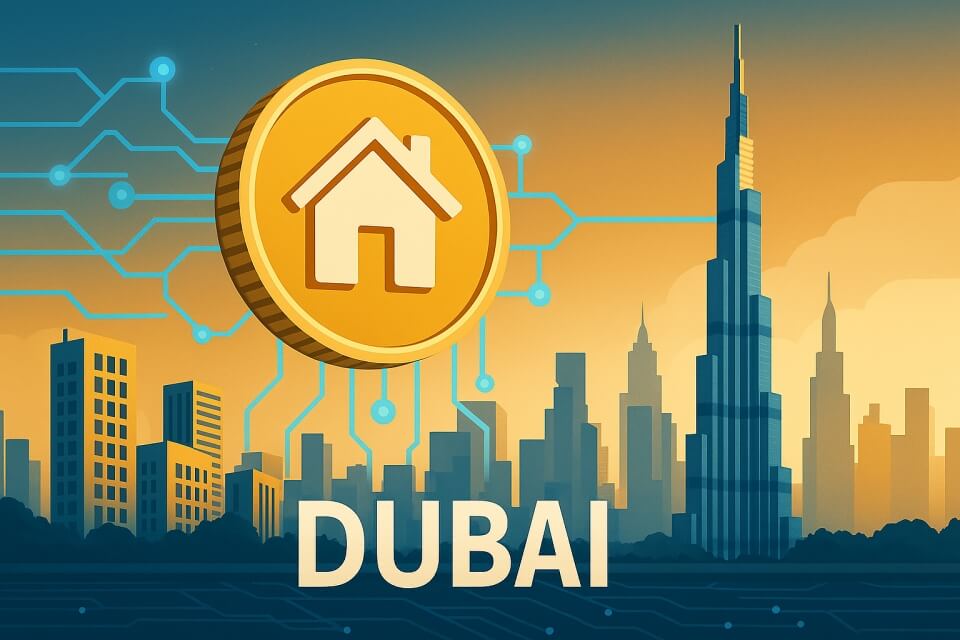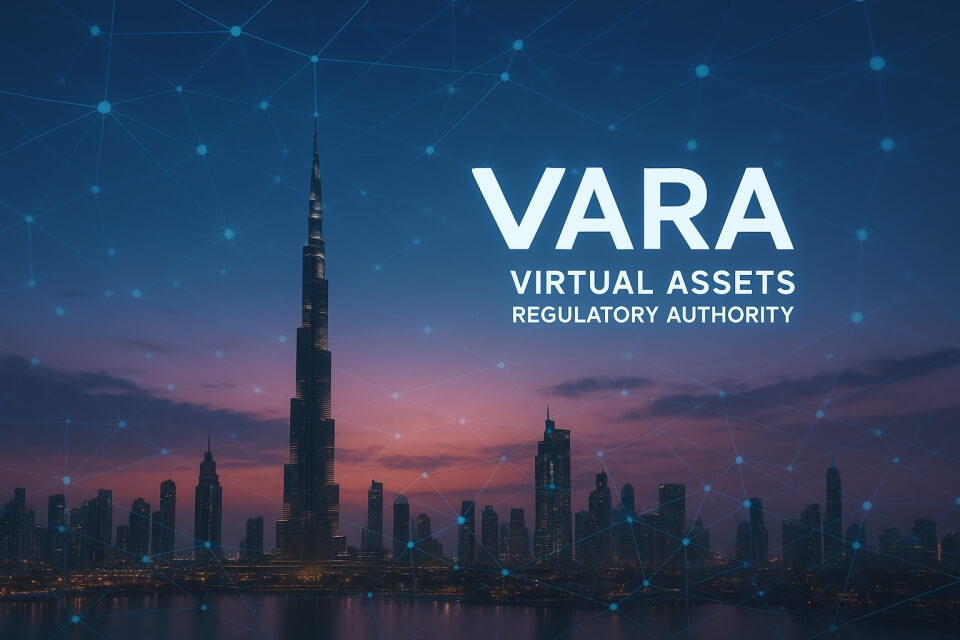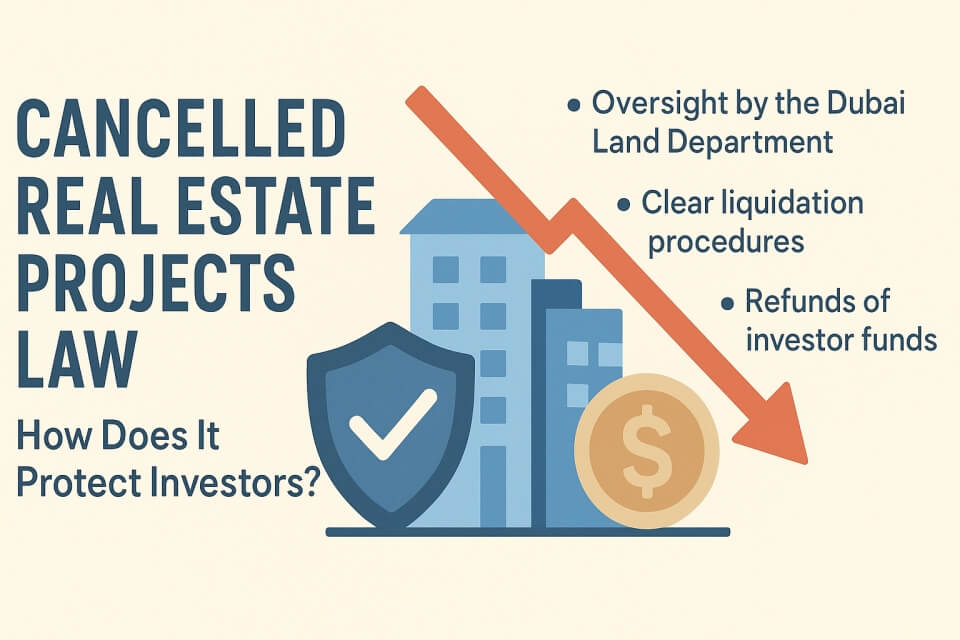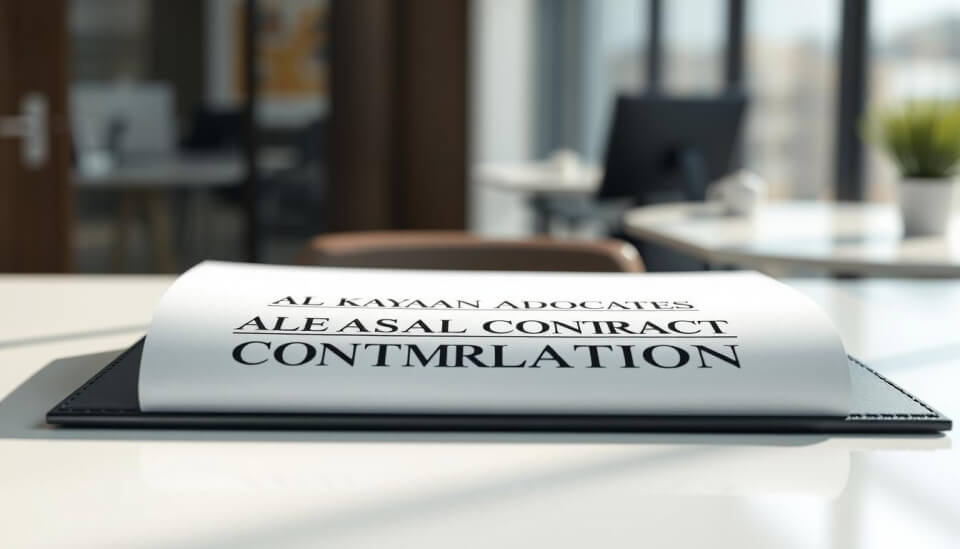المدونة القانونية
Tokenized Real Estate in Dubai: Legal Framework and Emerging Challenges

Dubai has long positioned itself as a global leader in embracing emerging technologies, and its recent entry into the field of real estate tokenization marks a significant step toward integrating blockchain with property markets. Through this initiative, the ownership of real estate assets is being reimagined and transformed into digital tokens that are securely recorded and tradable on blockchain platforms.
This approach opens the door to fractional ownership, improves market liquidity, and makes property investment more accessible to a broader segment of investors. Nevertheless, the legal implications of such a transformation are far-reaching. Questions surrounding the enforceability of tokenized ownership rights, the adequacy of investor protections, and the regulatory mechanisms to prevent money laundering and illicit finance are now at the center of legal and regulatory discourse in the UAE.
These challenges call for a careful and well-structured legal response to ensure the integrity and sustainability of this emerging investment model.
The Tokenized Real Estate Project in Dubai: An Overview
The Dubai Land Department (DLD) launched the first tokenized real estate project in the MENA region in collaboration with the Prypco platform, the Virtual Assets Regulatory Authority (VARA), the Central Bank of the United Arab Emirates, and the Dubai Future Foundation. The project enables individuals to purchase tokenized shares in ready properties in Dubai, with a minimum investment of AED 2,000, and all transactions are conducted in AED only during the pilot phase.
Zand Digital Bank has been chosen as the banking partner for the pilot phase, reflecting the project’s commitment to collaborating with regulated financial institutions to ensure transparency and security.
Regulatory and Legal Framework Governing Real Estate Tokenization in Dubai
The tokenized real estate initiative in Dubai is underpinned by a comprehensive regulatory framework designed to support technological innovation while safeguarding investor interests and ensuring compliance with anti-money laundering (AML) and counter-terrorism financing (CTF) obligations. Several key regulatory authorities play a central role in shaping and overseeing this emerging sector:
The Dubai Land Department (DLD) retains primary authority over physical real estate assets in the Emirate. In the context of tokenization, the DLD undertakes critical functions including the vetting of property valuations to ensure pricing transparency, the issuance of documented legal shares to investors, and the integration of tokenized rights with the official real estate register thereby reinforcing legal recognition and ownership security (pursuant to Law No. 7 of 2006 concerning Real Property Registration in the Emirate of Dubai (as amended by Law No. 7 of 2019)).
The Virtual Assets Regulatory Authority (VARA), established to regulate virtual assets within Dubai, has introduced updated rules permitting the tokenization of Real World Assets for trading on secondary markets. Under VARA’s regulatory regime, tokenized real estate instruments that fall within the definition of security tokens are classified as securities, thereby triggering compliance obligations such as licensing, investor disclosure, and adherence to AML/CTF frameworks (as per the Virtual Assets and Related Activities Regulations 2023).
The Central Bank of the United Arab Emirates plays a supervisory role over the financial infrastructure of tokenized real estate transactions. This includes oversight of “Client Money Accounts” (CMA) designated accounts in which investor funds are held securely. These funds are only released to the tokenization platform or issuer once the transaction is duly completed, thereby enhancing financial transparency and protecting investor capital (under the legal framework established by Federal Decree-Law No. 14 of 2014 regarding the regulation of stored value facilities, as amended by Federal Decree-Law No. 9 of 2021).
Future Asset Assurance in Dubai’s Tokenized Real Estate System
One of the defining legal features of Dubai’s tokenized real estate model is its focus on ensuring asset assurance through formal legal documentation. The Dubai Land Department (DLD) issues documented fractional ownership certificates that are directly tied to the property’s title deed, thereby granting legal recognition to each investor’s stake. This represents a significant departure from conventional tokenization structures, commonly based on Special Purpose Vehicles, which typically offer indirect economic rights rather than direct ownership interests.
While SPVs may still be utilized in certain aspects of property management, such as rental administration and profit distribution, Dubai’s regulatory approach distinguishes itself by integrating blockchain-based tokens with the official land registry. This direct linkage strengthens investor protection and mitigates legal ambiguity regarding the enforceability of ownership rights.
In parallel, dispute resolution mechanisms tailored to tokenized property transactions are being developed. Of particular note is the proposed integration of the Rental Dispute Center with blockchain technology and smart contracts. Such integration aims to streamline dispute resolution processes through automation and transparent enforcement protocols. Furthermore, the legal framework may accommodate alternative methods such as mediation and other forms of Alternative Dispute Resolution, providing flexibility and efficiency in resolving investor disputes.
Commitment to Anti-Money Laundering (AML) Compliance
The United Arab Emirates continues to prioritize the prevention of illicit financial activity within its financial and real estate sectors. In the context of tokenized real estate, Anti-Money Laundering (AML) compliance constitutes a foundational pillar of the regulatory framework. Authorities enforce rigorous Know Your Customer (KYC) and AML protocols, which are seamlessly integrated into tokenization platforms, particularly through the use of smart contracts that can automate compliance screening and investor onboarding procedures (in accordance with Federal Decree-Law No. 20 of 2018 on Anti-Money Laundering and Combating the Financing of Terrorism and Illegal Organizations (as amended by Federal Decree-Law No. 7 of 2024)).
The inherent transparency of blockchain technology further reinforces the effectiveness of AML controls by enabling immutable transaction records, real-time monitoring, and enhanced auditability. Additionally, the Central Bank of the UAE plays an active supervisory role in overseeing the use of Client Money Accounts (CMAs), ensuring that investor funds are securely held and only disbursed upon the proper completion of verified transactions. This model reduces the risk of misuse and increases investor confidence in the integrity of the system.
Challenges and Future Prospects
While the tokenization of real estate in Dubai offers substantial benefits, including fractional investment, market accessibility, and increased liquidity, several legal and operational challenges remain:
Firstly, the regulatory framework, although progressing rapidly, still requires further development in areas such as taxation, ownership enforceability, and the detailed resolution of legal disputes arising from digital asset transactions.
Secondly, the scalability and long-term success of the model will depend heavily on investor education and market awareness, particularly among traditional property investors who may be unfamiliar with blockchain-based systems.
Thirdly, cybersecurity and technical resilience pose ongoing risks. Given the reliance on decentralized infrastructure, it is imperative that tokenization platforms adopt robust cyber risk mitigation strategies and maintain strict compliance with information security standards.
Despite these challenges, projections suggest that tokenized real estate could represent up to 7% of Dubai’s property market by 2033, equating to an estimated AED 60 billion in value. This forecast aligns with the objectives of the Dubai Economic Agenda D33 and the Real Estate Sector Strategy 2033, both of which seek to enhance Dubai’s status as a global center for smart investment.
Key Legal and Regulatory Considerations
To ensure the long-term viability of the tokenized real estate sector in Dubai, several critical legal considerations must be addressed:
1- Asset Assurance: Legal enforceability of token-based ownership must be recognized by the judiciary. This requires legislative clarity, as well as secure systems for maintaining the integrity of digital records. Furthermore, SPVs involved in property management must be subject to enhanced regulatory oversight, with a clear obligation to disclose relevant information and comply with governance standards. Alignment with existing property laws, including real estate registration and transfer legislation, is also essential to avoid legal inconsistencies.
2- Dispute Resolution: Effective resolution of disputes in tokenized real estate transactions will depend on the technical expertise of judges and arbitrators, the proper delineation of smart contract functions, and the availability of accessible and multilingual ADR mechanisms. Additionally, legal instruments such as judgments and awards must be enforceable across jurisdictions to maintain investor protection.
3- AML Compliance: AML protocols must extend beyond initial investor screening to include continuous monitoring of transactional behavior, real-time detection of suspicious activities, and enhanced reporting obligations. International cooperation and cross-border information exchange will also be critical, particularly given the global nature of blockchain assets. The regulation of secondary trading platforms for real estate tokens must be equally stringent.
Recommendations for Strengthening the Legal Framework
To support the continued development of tokenized real estate in the UAE and ensure its compliance with best practices, the following legal and regulatory reforms are recommended:
1- Enact specific legislation that defines the legal status of tokenized real estate assets, outlining the rights and obligations of token holders, and the process for transferring or disposing of such rights.
2- Establish specialized dispute resolution mechanisms, including dedicated tribunals or arbitration centers equipped to handle digital asset and smart contract-related disputes.
3- Introduce enhanced regulatory oversight for SPVs used in real estate tokenization, with specific requirements for corporate governance, transparency, and investor reporting.
4- Develop unified legal and technical standards for smart contracts to ensure interoperability, enforceability, and protection against vulnerabilities.
5- Launch comprehensive awareness campaigns and educational programs aimed at investors, legal practitioners, and regulatory professionals to foster informed participation in the tokenized real estate market.
6- Maintain a flexible and adaptive regulatory framework capable of periodic review and amendment in response to technological innovation and emerging risks.
Conclusion
Dubai’s strategic embrace of real estate tokenization reflects a forward-thinking legal and regulatory vision that places the Emirate at the forefront of blockchain-enabled property investment. Through the coordinated efforts of the Dubai Land Department (DLD), the Virtual Assets Regulatory Authority (VARA), and the Central Bank of the UAE, Dubai has laid the groundwork for a secure, transparent, and innovation-driven market infrastructure.
This collaborative model not only reinforces investor confidence and legal certainty within the local context but also sets a compelling example for other jurisdictions exploring the integration of digital assets into their real estate sectors. As the regulatory landscape continues to evolve, Dubai’s framework offers a credible blueprint for shaping the future of real estate globally.
Written by:
Mahmoud Khashaba | Alhajeya Alnoobi Advocates & Legal Consultants

هذا المنشور لعرض المعلومات العامة فقط، ولا يهدف لتقديم استشارة قانونية شاملة أو أي نوع آخر من الاستشارات.
لا تتحمل شركة ليجال أدفايس ميدل إيست والمساهمون مسؤولية أي خسائر قد تنجم عن الاعتماد على المعلومات المذكورة في هذا المنشور. هذا المنشور يهدف فقط إلى الإشارة إلى المسائل القانونية التي تحتاج إلى طلب الاستشارة بشأنها.
لا بد من الحصول على استشارة قانونية شاملة في الوقت المناسب من خلال محامٍ كفء عند التعامل مع مواقف معينة.






